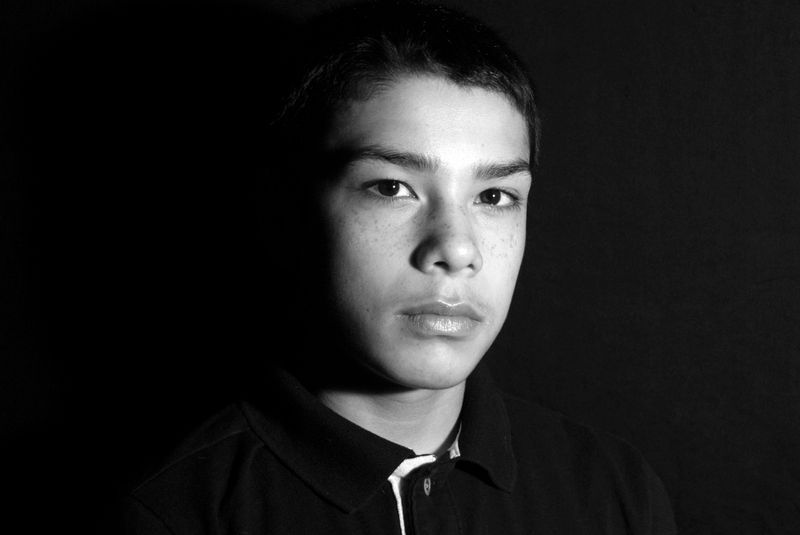We Are America
Becoming a Real Mexican
By Roman

Maine East High School, Illinois
Assuming, assuming, assuming. Everyone assumes things everyday, whether it is what people do, where they will go, or who they are. One thing I learned was to never assume someone’s race or what they identify as. I learned this from others judging me well before they took the time to know me. I am a white Latino. My mom is white and my dad was Mexican. I look like an average Mexican boy but with a twist: I have freckles from my mom so my white side is shown on my nose, my cheeks, and on my forehead. That’s my white side coming out from the darker, brown skin side. Even though I look more Mexican than American, it’s the complete opposite in my life since I had no Mexican representation growing up. My dad left me when I was little so I grew up only represented by my American side, with my grandma and my mom teaching me everything. I also was born in the United States and had never visited Mexico. I never had a father figure growing up, so everything I learned came from my mom, grandma, or sister.
As I grew up, I started to ask myself, “Where do I belong? What’s my group?”
I found the answer to this question by spending seventh grade in a new school with people I had never met before. Here at this new school I realized what group I belong with: “The Mexicans.” Everyday I was hanging out with them during class and lunch. I was always with at least one person from that big group, but the more I hung out with them, the more I realized something was different about me. I really didn’t know what it was, until I was asked, “You speak Spanish right?” That question, that question, that question continued to come up in every single conversation with every single person in the group. I would always respond with, “No, I don’t speak Spanish.” I don’t even remember how many times I was asked that question. Then, after constantly being bothered about it, a comment start- ed coming up. People would say to me, “You’re not even Mexican and you can’t even speak Spanish.” This comment came up the more people I met. It didn’t bother me at first, but the more I heard a comment like that, the more it annoyed me. It seemed like everyone had a problem with me identifying as a Latino even though I was half white. They just wouldn’t understand that I had no Latino mentors in my life because my dad had left and he was the one that was Mexican. Without his presence, I had no one to teach me spanish or any other aspects of Mexican culture.
After all that, I wanted to learn Spanish so I could understand the culture and fit in with my friends. All my friends were saying these words and phrases that I never understood, but I just laughed with them to act like I understood. I became so sick of it that I decided to take Spanish. I immediately loved Spanish class since I started to learn how to speak and understand words in this language that felt like my own. After a few months of taking Spanish, nothing changed, so I stopped caring what people said to me because I knew that I was Mexican. I knew I belonged with them and eventually, they accepted me. When people asked me what I was, I would be straight up with them, stating I’m half white and half Mexican. I wasn’t going to let people tell me who to hang out with just because I’m not 100 percent Mexcian.
Through these experiences, I really learned how it felt to be judged by my race, by how I identified. I had to forget what people were saying and how they thought of me as a “fake Mexican”. In truth, I am glad that I had to go through this because it taught me lessons like don’t judge others and it helped me see how other people feel when they get judged or profiled. Now, I know not to judge people based on how they identify because I was once in their shoes. Instead, if I see anyone struggling with the same problems I went through, I help them because no one helped me.
© Roman. All rights reserved. If you are interested in quoting this story, contact the national team and we can put you in touch with the author’s teacher.